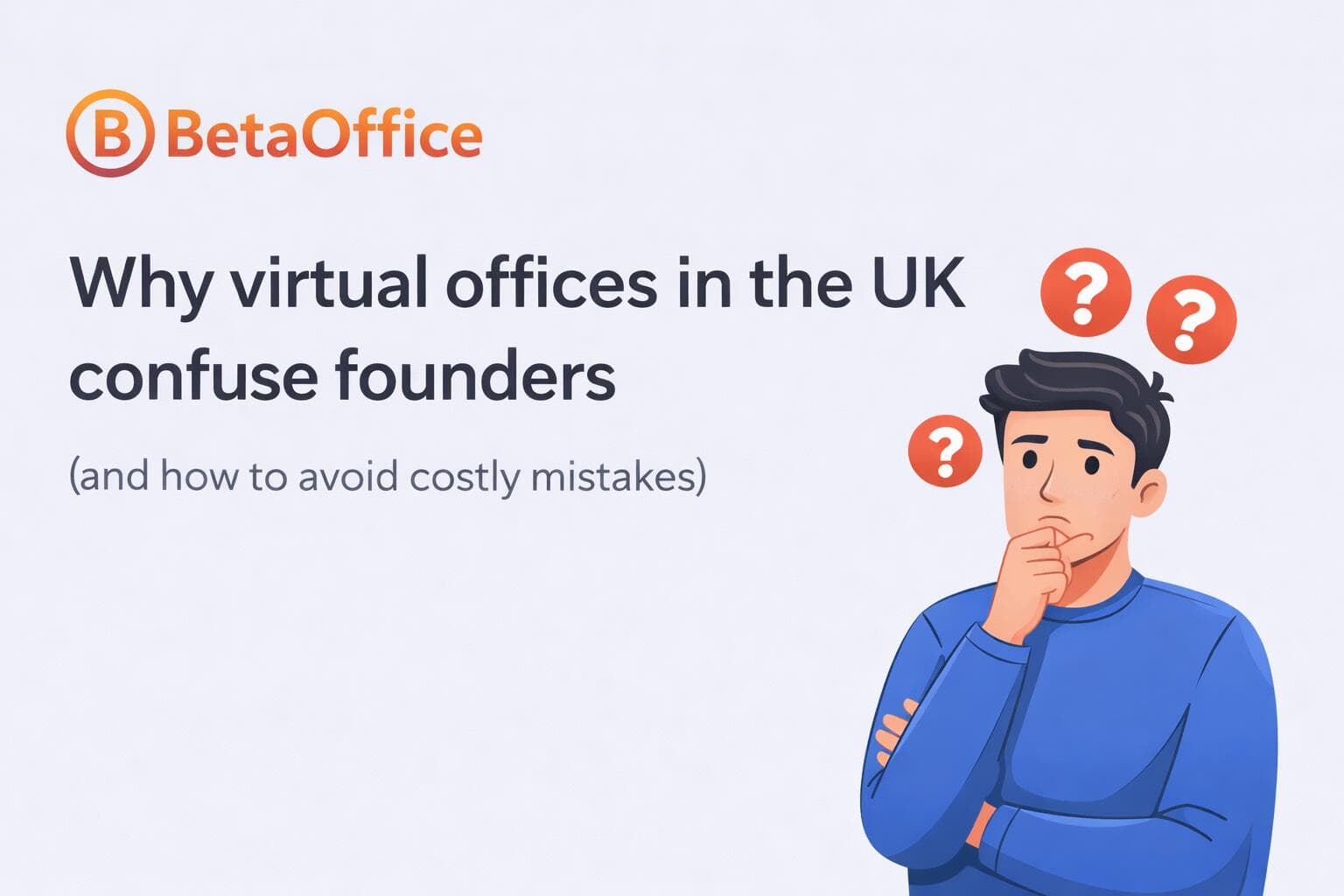Overview
Starting a consultancy in the UK is one of the fastest ways to turn your skillset into income.
Whether you're offering marketing, IT, software development, HR, finance, design, or strategy, the process becomes straightforward when broken down into clear, practical steps.
This updated 2026 guide covers:
- choosing the right business structure,
- selecting a compliant business name,
- setting up your registered office & director service address,
- preparing essential contracts,
- common pricing models,
- VAT and tax considerations,
- key compliance requirements,
- and proven ways to land your first consulting clients.
The guidance reflects current UK regulations and modern remote consultancy setups.
If you want credibility from day one, most consultants operate via a
👉 Virtual Office in London.
Let’s start.
1) Pick the right structure for your consultancy
Choosing the correct structure affects tax, liability, and how clients perceive you.
If you’re planning to operate from London, compare:
- Virtual Office London (main setup)
- Cheap Registered Office London (legal/compliance)
- Virtual Office Address UK
Sole Trader
Best for low-risk early testing:
- Simple registration
- Minimal admin
- But no limited liability
- Some clients prefer limited companies
Limited Company
Most UK consultants eventually choose this because it offers:
- Limited liability protection
- More credibility
- Tax flexibility
- Salary + dividend structure
- Easier B2B contracting
Most new consultants start as a limited company and use a compliant registered office address.
2) Choose your consultancy name and brand
Before registering:
- Check name availability on Companies House
- Secure .co.uk or .com
- Create simple branding + logo
- Build a light website with services, case studies, and contact form
For stronger trust signals, a London address helps:
3) Address & privacy: Don’t expose your home address
Your consultancy must publicly display a registered office address on:
- Companies House
- Website
- Invoices
- Contracts
- Email footer
If you don’t use a provider, your home address becomes public.
Best-practice setup
- Registered Office (public legal address)
- Director Service Address (protects your privacy)
- AI mail scanning with summaries + forwarding
For budget-friendly but compliant options:
Most consultants choose a
👉 Virtual Office in London
to keep their home address private and look established.
4) Contracts & proposals
Essential documents
- MSA (Master Service Agreement)
- SOW (Statement of Work)
- NDA
- Payment terms
- Scope & revisions
- IP ownership
- Liability cap
Proposal tips
- 1–3 pages is enough
- Sell outcomes, not hours
- Offer fixed-fee options
5) Pricing & invoicing for UK consultants
Pricing models
- Daily rate (£250–£1,200+)
- Hourly
- Fixed project fee
- Monthly retainer
- Value-based pricing
Invoicing
- Clear terms
- Upfront deposits
- Milestone billing
- Late fees if needed
6) Taxes, accounting & VAT
Essentials
- Track expenses
- Keep receipts
- Use cloud accounting
- Consider an accountant
VAT (2025)
- Threshold: £90,000
- Below threshold: optional VAT registration
- Corporate clients usually prefer VAT-registered consultants
If you need a compliant London presence:
7) Compliance & data protection
Must-haves:
- ICO registration (£40/yr)
- Privacy notice
- Secure storage of client data
- DPA if processing personal data
8) How to get your first consultancy clients (fast)
Proven methods:
- Post 3–5 strong LinkedIn posts
- Announce your consultancy
- DM former colleagues
- Publish case studies
- Produce educational content
- Offer a free 15-minute call
- Ask for warm introductions
Niche examples:
- “AI automation for accountants”
- “Marketing for skincare DTC brands”
- “HR frameworks for startups”
Specific > General.
9) Tools & operations you’ll need
- E-signature tools
- Time tracking
- Bookkeeping app
- CRM
- AI-powered mail dashboard
For remote or non-UK founders:
10) Go-live checklist
- Business structure selected
- Registered office + director address active
- Business bank account open
- Website live
- LinkedIn optimised
- Contracts prepared
- Pricing defined
- Outreach messages sent
- Accounting system ready
Mini-FAQ
Do I need a business bank account?
If you operate as a limited company, yes.
Should I start as a sole trader?
You can — switching later is simple.
Can I run a consultancy remotely?
Yes — most UK consultants operate fully remotely using a virtual office setup.
For credibility with UK and international clients: 👉 Virtual Office London
Give your consultancy a credible London footprint and stress-free mail management.
See plans




